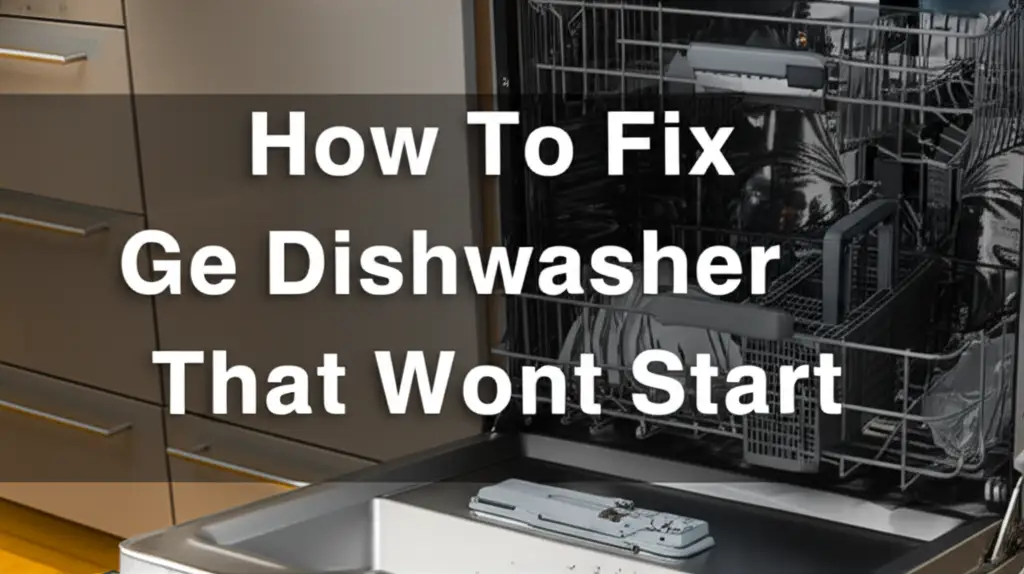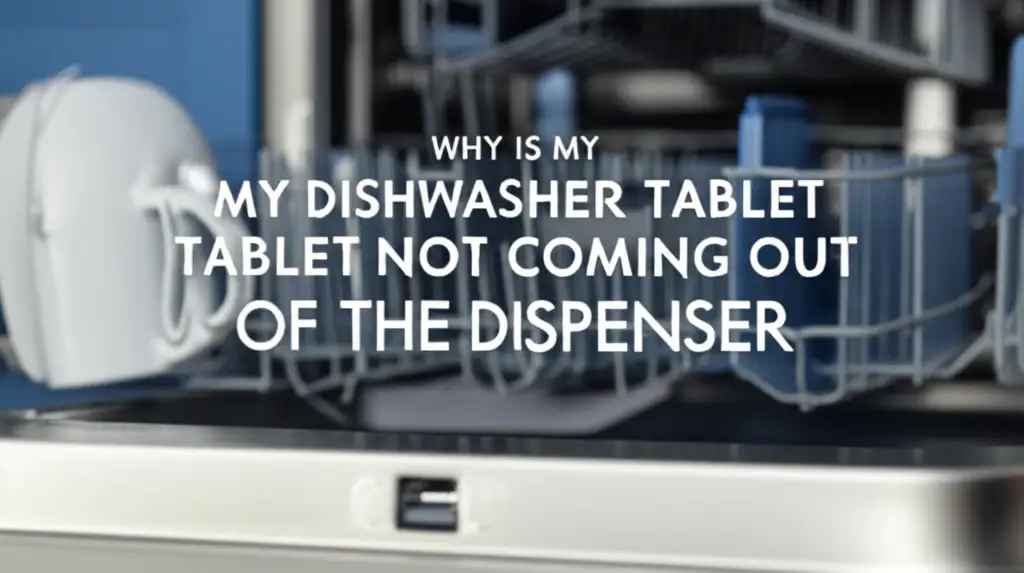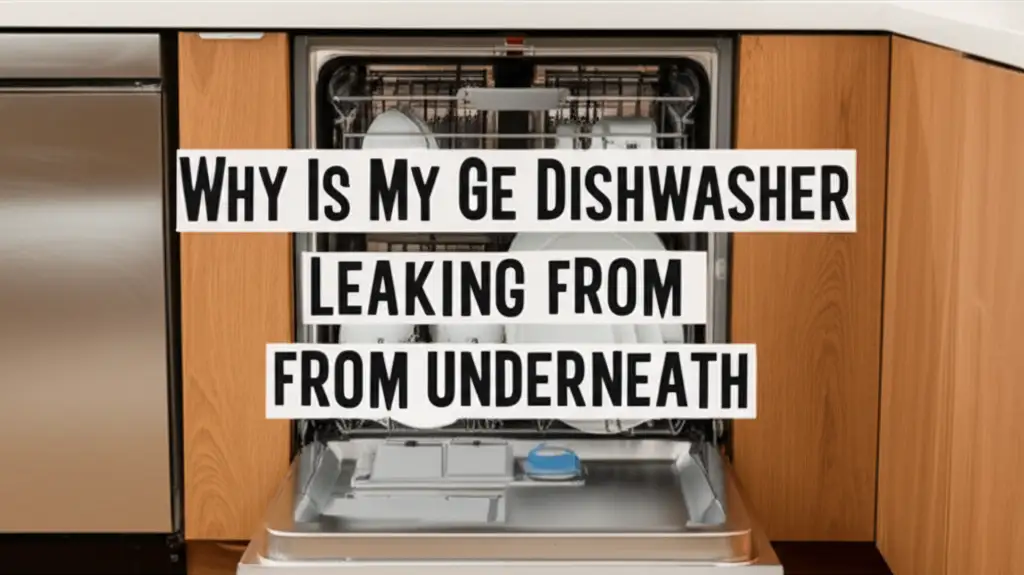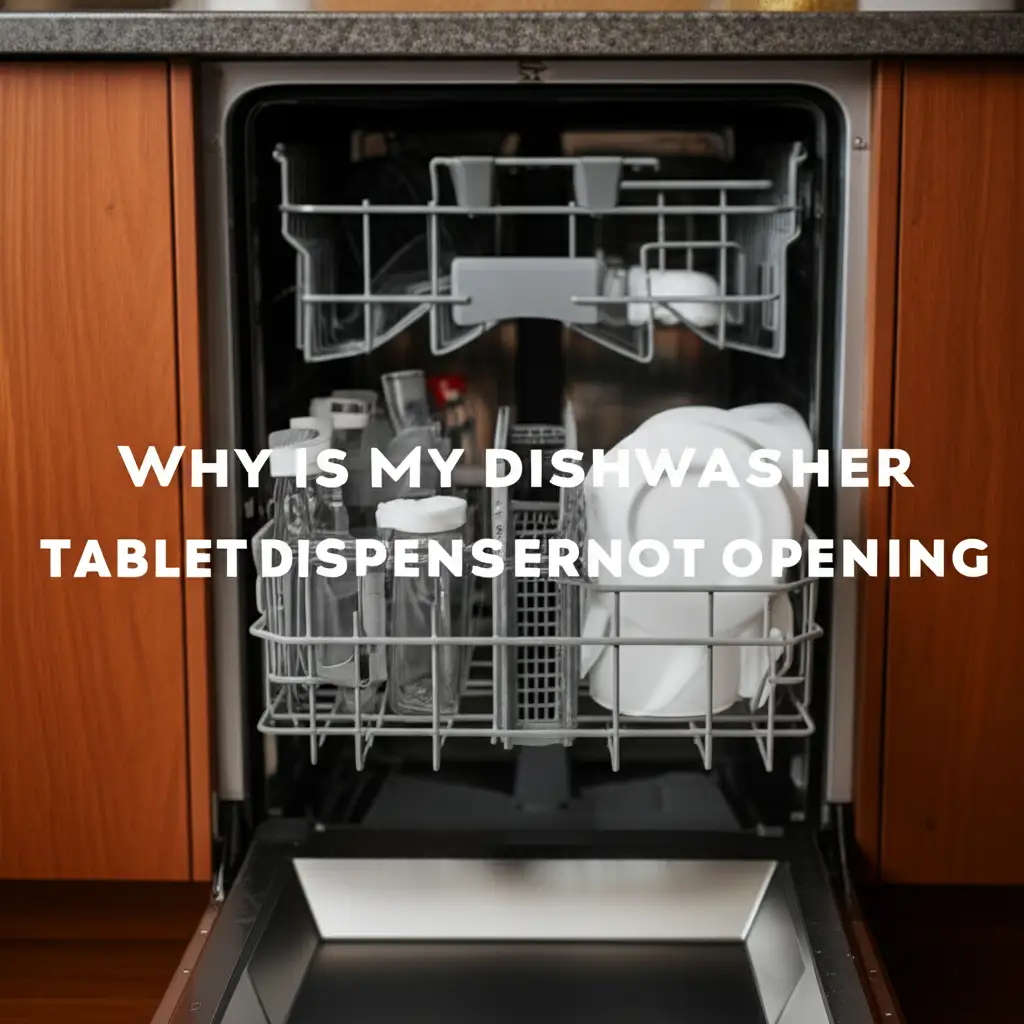· Katria Melrose · Appliance Repair · 13 min read
Why Is My Dishwasher Buzzing
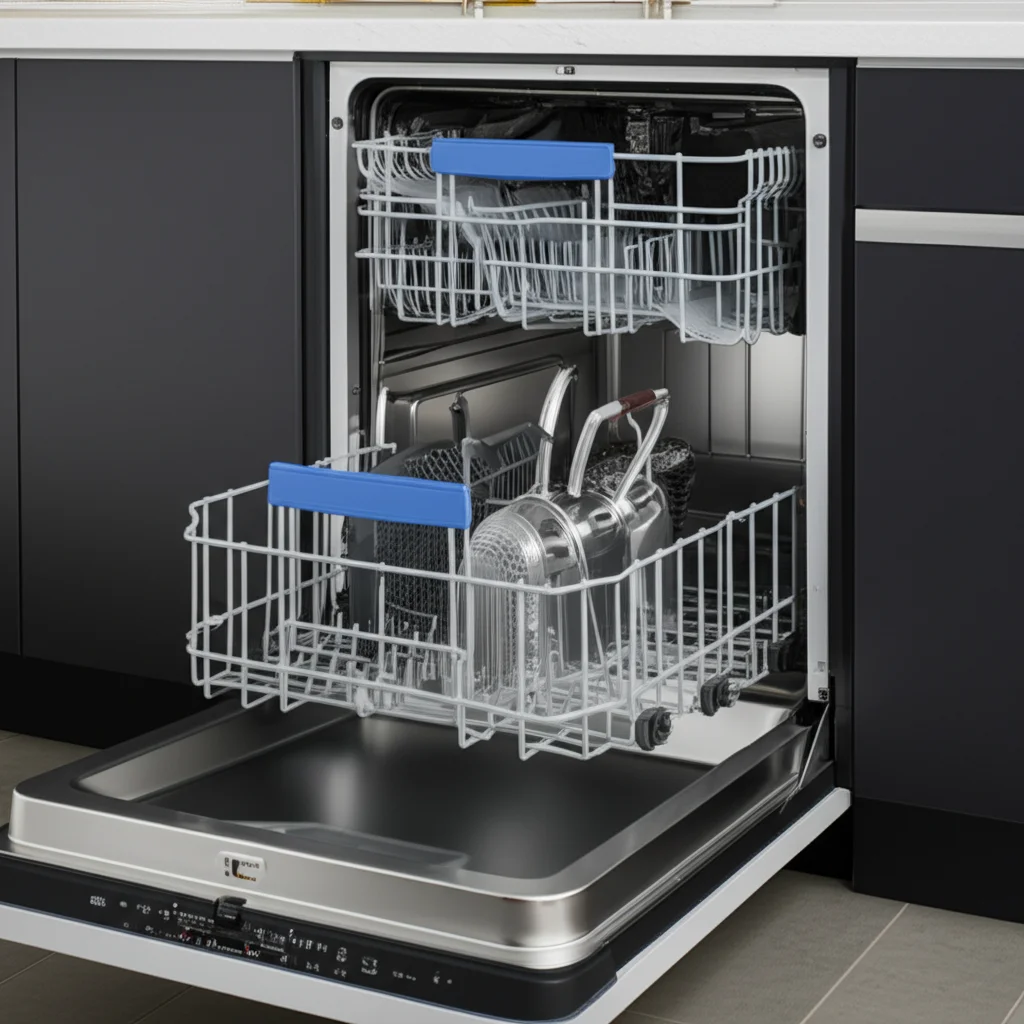
Why Is My Dishwasher Buzzing: Diagnose and Fix
Hearing a strange noise from your dishwasher can be concerning. Many homeowners ask, “Why is my dishwasher buzzing?” This humming or vibrating sound often signals an underlying issue. A buzzing dishwasher may indicate problems with water flow, drainage, or internal components. Understanding the cause helps you address the problem effectively. I will guide you through common reasons for this noise and provide clear steps to troubleshoot and fix it.
Takeaway
A buzzing dishwasher often signals a component issue.
- Check the Water Inlet Valve: A faulty or clogged valve can cause a buzz.
- Inspect the Drain Pump: Debris or a failing pump can create buzzing during draining.
- Examine the Circulation Pump: Issues with this pump lead to buzzing during the wash cycle.
- Assess the Motor: Worn motor bearings or a faulty capacitor can cause a hum.
- Look for Electrical Faults: Solenoids or control board issues sometimes produce buzzing.
- Clear Blockages: Food debris in filters or spray arms can contribute to noise.
Your dishwasher might be buzzing due to issues with its water inlet valve, drain pump, circulation pump, or motor. Electrical components or blockages can also cause this sound. Identifying the specific cause helps you pinpoint the repair needed to silence the noise.
Understanding Common Dishwasher Buzzing Sounds
A dishwasher buzzing noise can start subtly and become louder over time. This sound is generally a sign of a mechanical or electrical component struggling. It can range from a low hum to a distinct vibrate. Recognizing when the buzzing occurs helps narrow down the problem. Does it buzz at the start of a cycle, during washing, or while draining?
Different buzzing sounds point to different parts. A constant buzz may mean an electrical part is stuck or failing. A buzz that comes and goes often relates to moving parts. For example, water moving through a restricted area can create a buzzing sound. Paying attention to these details provides clues for diagnosis.
Many parts work together in your dishwasher to clean dishes. When one part struggles, it can affect others. This struggle often creates unusual noises like buzzing. We will look at each main component that could cause this sound. Knowing what each part does will help you understand why it makes noise.
Sometimes, the buzzing is not a major issue. It might be something simple that you can fix easily. Other times, it signals a part needs replacement. Proper diagnosis saves time and effort. I want to help you identify the exact problem with your buzzing dishwasher.
Water Inlet Valve: The Source of a Persistent Buzz
The water inlet valve controls water flow into your dishwasher. This valve opens to let water in at the beginning of a cycle. If it gets stuck or partly blocked, it can cause a buzzing sound. This buzzing happens as water tries to pass through a restricted opening. You might hear this noise when the dishwasher first fills with water.
A common reason for a buzzing water inlet valve is sediment buildup. Minerals from hard water can accumulate inside the valve. This buildup prevents the valve from opening fully or smoothly. The vibrating parts create the buzzing noise. You might also notice your dishwasher taking longer to fill.
To check the water inlet valve, turn off the water supply to your dishwasher. Disconnect the water line from the valve. Look for any visible debris or mineral deposits. You can try cleaning the screen filter inside the valve. If the buzzing continues after cleaning, the valve itself might be faulty.
A faulty water inlet valve needs replacement. This is a common part that wears out over time. If you suspect your valve is causing the buzzing, consider replacing it. A new valve will ensure proper water flow and eliminate the noise. This step helps your dishwasher work efficiently again.
The Drain Pump: When Your Dishwasher Buzzes During Draining
The drain pump is vital for removing dirty water from your dishwasher. It kicks in at the end of wash cycles and before drying. If you hear a buzzing specifically when your dishwasher tries to drain, the drain pump is likely the culprit. This noise often means the pump is struggling to move water.
One common reason for a buzzing drain pump is a blockage. Food particles, broken glass, or other debris can get stuck in the pump impeller. The pump motor then strains against this obstruction, creating a loud buzzing sound. This can also prevent your dishwasher from draining properly. If your dishwasher does not drain and buzzes, check the drain pump.
You can inspect the drain pump for blockages. First, disconnect power to your dishwasher. Access the pump, often located at the bottom of the unit. Remove any visible debris from the impeller area. This simple cleaning often resolves the buzzing noise. Regularly cleaning your dishwasher drain helps prevent such issues.
Sometimes, the drain pump motor itself fails. Bearings can wear out, or the motor windings can burn. In these cases, the pump will buzz but may not drain any water. If clearing blockages does not help, the drain pump might need replacement. Replacing a faulty pump ensures your dishwasher can get the dishwasher to drain effectively and quietly. You can often clear your dishwasher drain line to help alleviate pressure on the pump.
Circulation Pump: A Key Player in Dishwasher Buzzing
The circulation pump, also known as the wash pump, moves water through the spray arms during the wash cycle. It is responsible for spraying water onto your dishes. If your dishwasher buzzes during the main wash cycle, the circulation pump could be the problem. This buzzing often indicates the pump is laboring.
Similar to the drain pump, the circulation pump can buzz due to debris. Small food particles or foreign objects can enter the pump. These items jam the impeller or create friction. The pump then struggles to spin freely, causing a buzzing noise. This can also lead to poor wash performance. A regular routine to clean your filter in the dishwasher can prevent debris reaching the pump.
Another cause is worn-out bearings within the pump motor. Over time, these bearings can degrade, leading to increased friction and noise. You might hear a grinding sound accompanying the buzz. If the pump runs without water, or if it runs constantly, this can also cause damage. Addressing these issues can keep your dishwasher running smoothly.
Accessing the circulation pump often involves pulling the dishwasher out. This can be a more involved repair than cleaning a filter. If you suspect the circulation pump, check for blockages first. If the problem persists, the pump might need professional repair or replacement. Maintaining a clean dishwasher interior, including regularly cleaning the inside of a dishwasher, helps protect this vital component.
Motor Malfunctions: Diagnosing a Dishwasher Motor Buzz
The main motor drives both the circulation and drain pumps in many dishwasher models. If the motor itself has issues, you can hear a distinct buzzing sound. This sound often indicates a problem with the motor’s internal components. A failing motor often produces a louder, more persistent buzz than other parts.
One common motor problem is worn-out bearings. Bearings allow the motor to spin smoothly. When they wear down, they create friction and noise. This can sound like a grinding buzz. You might also notice the motor overheating. Addressing this early can prevent more significant damage.
Another motor component that can fail is the capacitor. A capacitor helps the motor start and run efficiently. If the capacitor is weak or faulty, the motor might struggle to start. It may just hum or buzz loudly without fully engaging. The motor might also stop prematurely during a cycle.
Diagnosing a motor issue often requires some technical knowledge. You would need to check voltage to the motor or test the capacitor. It is important to turn off all power to the dishwasher first. If the motor is buzzing but not turning, it may be receiving power but is unable to operate. In many cases, a faulty motor requires replacement. This repair can be complex and sometimes warrants professional assistance.
Electrical Components and Solenoids: Unraveling the Buzz
Dishwashers use various electrical components and solenoids to control functions. Solenoids are electromagnetic switches that activate parts like the detergent dispenser or the drain valve. If one of these solenoids becomes faulty, it can produce a buzzing sound. This happens as the coil attempts to engage but faces resistance.
A common example is the drain solenoid. If it gets stuck or does not receive proper power, it can buzz. You might hear this when the dishwasher transitions to the drain cycle. Similarly, a dispenser solenoid might buzz if it cannot fully open or close. This can prevent proper detergent release.
The control board or timer also contains electrical relays. These relays click on and off to control different functions. If a relay gets stuck or is failing, it can make a buzzing or chattering sound. This can disrupt the dishwasher’s cycle. A faulty control board might also send incorrect signals, leading to component buzzing.
Troubleshooting electrical components requires caution. Always disconnect power before inspecting anything. You can visually check for burnt wires or connections. Sometimes, cleaning the contacts of a solenoid can resolve the buzz. However, if a component is truly faulty, it needs replacement. For example, a door switch on a dishwasher that buzzes upon engagement could indicate an electrical fault.
Minor Causes and Simple Fixes for Dishwasher Buzzing
Not all buzzing noises indicate a major problem. Sometimes, simple issues can cause your dishwasher to buzz. These are often easy to diagnose and fix yourself. Checking for these minor causes first can save you time and money on unnecessary repairs. It is always wise to start with the simplest solutions.
One common cause is loose items inside the dishwasher. A utensil, a small plate, or even a piece of plastic can fall and get caught. These items might vibrate against the spray arm or heating element. This creates a buzzing or rattling sound. Simply opening the dishwasher and rearranging items can solve this. Also, ensure the spray arms can spin freely without hitting dishes.
An unbalanced dishwasher can also create vibrations and buzzing. If your dishwasher is not level, it can shake more during cycles. This shaking can transfer to other parts, causing a general buzzing sound. Use a level tool to check the unit’s balance. Adjust the leveling feet until the dishwasher sits firmly and evenly on the floor.
Sometimes, a water hammer effect can cause a buzzing. This happens when water flow suddenly stops or changes direction. The pipes can vibrate, creating a loud bang or buzz. Installing a water hammer arrestor on your water line can mitigate this. Ensuring proper water pressure also helps. Regular maintenance, such as performing a deep clean on your dishwasher, can prevent debris buildup that might exacerbate these minor issues.
Troubleshooting and Preventative Maintenance for a Quiet Dishwasher
When your dishwasher starts buzzing, a systematic approach to troubleshooting helps. First, identify when the buzzing occurs. Is it constant, or does it happen during specific cycles like filling, washing, or draining? This timing helps pinpoint the faulty component. For example, a buzz during filling points to the water inlet valve. A buzz during draining points to the drain pump.
Always disconnect power to your dishwasher before performing any inspection or repair. Safety is paramount when working with appliances. Visually inspect the components you suspect are causing the noise. Look for signs of damage, debris, or wear. Sometimes, a simple cleaning of a clogged part can resolve the issue. Cleaning the dishwasher pump can prevent many buzzing problems.
Preventative maintenance is key to avoiding future buzzing noises. Regularly clean your dishwasher filter to prevent food debris from entering pumps. You can follow guides on how to clean your dishwasher filter for detailed steps. This simple step helps maintain efficient operation. Knowing how often you should clean your dishwasher filter is also beneficial.
Additionally, periodic deep cleaning helps prevent mineral buildup and clogs. Use methods like cleaning your dishwasher with vinegar or baking soda. These solutions help dissolve grease and grime. Ensure dishes are pre-scraped to minimize debris entering the dishwasher. These simple habits keep your dishwasher running smoothly and quietly for longer.
FAQ Section
Can a clogged filter cause my dishwasher to buzz?
Yes, a clogged filter can indirectly cause your dishwasher to buzz. A heavily clogged filter restricts water flow, forcing the circulation pump or drain pump to work harder. This extra strain can lead to a buzzing sound as the pump struggles against the resistance. Regularly cleaning your filter helps prevent this issue.
Is it safe to use a buzzing dishwasher?
It is generally not safe to continue using a buzzing dishwasher without investigating the cause. A persistent buzz can indicate a failing motor, pump, or electrical component. Continued use might lead to further damage to the appliance. It could also pose a safety risk, such as overheating or water leakage.
How do I know if the buzzing is from the drain pump or circulation pump?
The timing of the buzz helps identify the source. If the buzzing occurs specifically when the dishwasher is attempting to drain water, it likely points to the drain pump. If the buzzing happens during the main wash cycle, when water is being sprayed onto dishes, the circulation pump is more likely the culprit.
Can old age make my dishwasher buzz?
Yes, older dishwashers are more prone to buzzing due to wear and tear. Components like motors, pumps, and bearings naturally degrade over time. This degradation leads to increased friction, vibration, and noise. While cleaning and minor repairs can help, sometimes older units require part replacement or full unit replacement.
What should I do if my dishwasher buzzes and does not start?
If your dishwasher buzzes but does not start, first check the door latch and power supply. A buzzing sound often indicates the motor is receiving power but cannot fully engage. This could be due to a faulty motor capacitor, a jammed pump, or an electrical issue. Disconnect power and inspect internal components.
When should I call a professional for a buzzing dishwasher?
You should call a professional if you cannot identify the source of the buzz. Also, seek help if the repair seems too complex or requires specialized tools. If the buzzing is accompanied by smoke, burning smells, or water leaks, immediately turn off the power and call a technician for safety reasons.
Conclusion
A buzzing dishwasher can be frustrating, but understanding the common causes helps you find a solution. We covered various culprits, from water inlet valves and drain pumps to circulation pumps and main motors. Electrical components and minor issues can also cause this annoying noise. My goal was to provide clear steps to help you diagnose the problem yourself.
Remember, safety comes first. Always disconnect power before you begin any inspection or repair. Performing regular maintenance, like cleaning filters and ensuring proper drainage, can prevent many buzzing problems. Addressing the buzzing early can save you from more extensive repairs down the line. If you’re still asking, “Why is my dishwasher buzzing?” after these steps, then it may be time to seek professional help. Your dishes, and your peace of mind, will thank you.
- dishwasher noise
- buzzing appliance
- dishwasher repair
- appliance troubleshooting
- home repair
- buzzing sounds
- dishwasher problems


